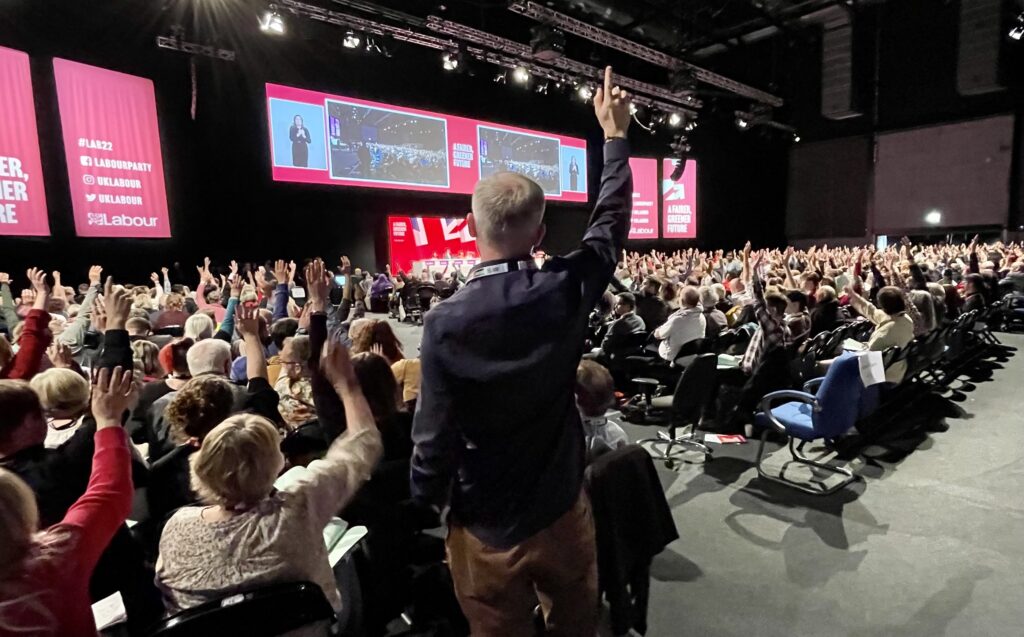The Labour movement supports electoral reform – and expects party policy to reflect that

This weekend, Labour’s National Policy Forum (NPF) will deliberate and agree upon Labour’s draft ‘party programme’. Not to be confused with the manifesto – which will be a concise summary of the central missions of the next Labour government and will not be agreed until the election is called – the party programme is a comprehensive overview of the party’s beliefs and positions across all policy areas.
Electoral reform is amongst the policy areas most keenly anticipated across the party. Support for replacing First Past the Post with a form of proportional representation has sky-rocketed over the last three years, transforming PR from niche interest to mainstream consensus across the Labour movement. The vast majority of both Constituency Labour Parties and our affiliated trade unions have debated and endorsed electoral reform during that time. Up and down the country there are the canvassers, ward organisers and shop stewards who expect the decisions of Labour’s policy body to reflect this.
It’s not just what the #Labour4PR campaign has achieved that matters – it’s how they have achieved it. From its launch in 2020 to today, it has consistently brought together members from across Labour’s political spectrum in common cause – building a broad and inclusive campaign which spans the entire party.
Andy Burnham has called the campaign “one of the most unifying things in the Labour Party”. At last year’s conference rally, MP Nadia Whittome described how it had “united people from all tendencies – of the left, the right and the centre”. At the same event Luke Akehurst, of Labour To Win, welcomed this breadth as “an incredible source of strength” that shows electoral reform “isn’t about left and right in the party, it’s about the right and wrong of a moral issue about democracy.”
While some Labour campaigns can end up as proxies in Labour’s factional battles, L4ND’s arguments are “always made courteously and respectfully,” according to longtime NEC stalwart Ann Black, “relying on logic and persuasion, listening and responding to opposing views rather than shouting them down.” It is “a model from which all campaigns can learn” and, she adds, “I believe the same attitude can help Labour to win the next election.”
The PR campaign has applied this positive approach to every policy-making process. It painstakingly built the necessary support across Labour’s constituent parts, securing the backing of two thirds of affiliated unions through their individual decision-making bodies. It won the overwhelming endorsement of the Labour’s supreme decision-making body: annual conference. This year, it engaged comprehensively with the National Policy Forum’s consultations and elected representatives which, the party says, will inform the final policy – proving that electoral reform remains a top priority of the membership.
Amendments to the policy programme text in favour of PR have been proposed and seconded by CLP and trade union representatives from all over the UK and across the spectrum of the party. As a representative of Labour’s affiliated socialist societies, I am proud to have joined them in tabling an amendment.
Everyone knows that if all the members of the National Policy Forum accurately reflected the views of those they represent, the party would adopt an unequivocal commitment to the next Labour government introducing PR. We know things are not always that simple in the Labour Party, but those tempted to allow a small minority to override a far larger movement should reflect upon how the campaign for PR within Labour has decisively won the argument and acted as a positive, unifying force across the spectrum of the Labour movement.
The people who are most passionate about winning a Labour government – members who pay their subs, deliver leaflets, knock on doors and stand for election – are overwhelmingly committed to putting equality at the ballot box at the heart of British democracy. Collectively, they – we – have done everything the party asks of those members who want to shape party policy. We have done it on a scale surpassing any single issue campaign in the party’s history, demonstrating a clear consensus for PR across the Labour movement. How the Labour’s policy makers now respond will send a clear message to all Labour members.
As the party gears up for an election, we hope the message back to us is that positive, unifying campaigning will not simply be ignored. It is clear beyond doubt that the Labour movement believes First Past the Post is bust and must be replaced. It would be a mistake for the National Policy Forum to pretend otherwise.
Hannah Rich is Director of Christians on the Left and represents affiliated socialist societies on Labour’s National Policy Forum.



